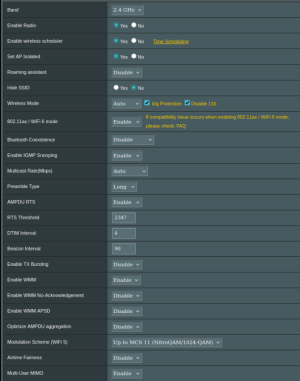Stephen Harrington
Very Senior Member
I'll throw in another option to consider that may appeal to some?
Much more compact than an SSD, but maybe (??) more reliable than a cheapo USB drive - I've been using this combo for a few years without issues for numerous AMTM addons and Entware. I have two complete "units" and rotate and back them up semi-regularly in case of a failure. The uSD card is designed for car dash-cams / security cameras and the like. They are (or were) both available on Amazon. It's very low profile and barely sticks out of the back of the router ...


Cheers
Much more compact than an SSD, but maybe (??) more reliable than a cheapo USB drive - I've been using this combo for a few years without issues for numerous AMTM addons and Entware. I have two complete "units" and rotate and back them up semi-regularly in case of a failure. The uSD card is designed for car dash-cams / security cameras and the like. They are (or were) both available on Amazon. It's very low profile and barely sticks out of the back of the router ...
SanDisk SDDR-B531-GN6NN MobileMate USB 3.0 microSD Card Reader
+
Sandisk 64GB Max Endurance microSDHC Memory Card
Cheers




